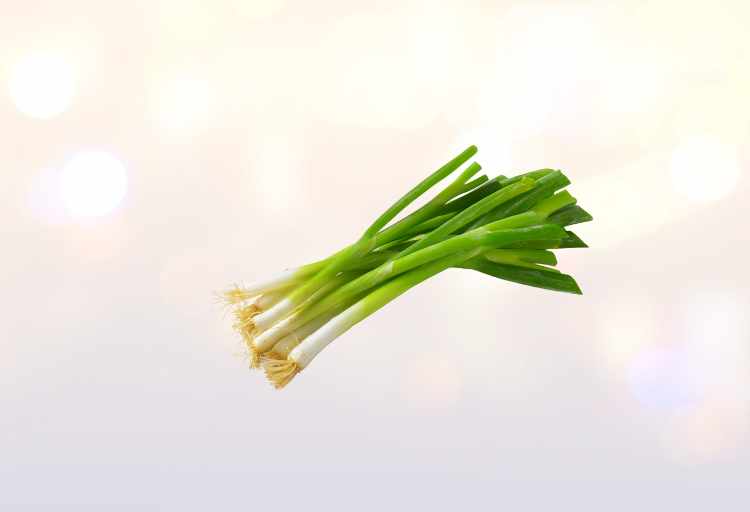7 Best Substitutes For Spring Onion
Looking for a substitute for spring onions? Look no further! We’ve got you covered with the best alternatives that will add a burst of flavor to your dishes.
Whether you ran out of spring onions or simply prefer a different taste, these substitutes will not disappoint.
- Scallions are an excellent choice with their mild yet tangy flavor, perfect for garnishing salads and soups.
- Leeks offer a milder and sweeter taste, making them ideal for sautéing or adding depth to stews.
- Shallots bring a delicate onion flavor that works wonders in dressings and sauces.
- Chives provide a subtle onion taste and are great in creamy dips or on top of baked potatoes.
- If you’re looking for something more pungent, red onions give any dish an intense kick.
- White onions offer a milder alternative that can be used in various cooked dishes.
- Lastly, don’t forget about garlic – its distinct and aromatic flavor can elevate any recipe.
So go ahead, experiment with these fabulous substitutes, and take your cooking to new heights!

What Are the Best Substitutes For Spring Onion?
1. Scallions
Scallions, also known as green onions, are the perfect substitute for spring onion if you want to add a mild and oniony flavor to your dish. Beyond just being used as a garnish, scallions have various culinary uses. You can chop them up and incorporate them into stir-fries, soups, or salads to enhance the taste of your meals.
Apart from their delicious flavor, scallions offer numerous health benefits when included in your diet. They’re packed with essential nutrients like vitamin C, vitamin A, and fiber. These nutrients help boost your immune system and promote healthy digestion. Scallions also contain antioxidants that protect against cell damage and reduce the risk of chronic diseases.
Incorporating scallions into your dishes not only adds a burst of flavor but also offers a range of health benefits. So next time you’re in need of a spring onion substitute, reach for some fresh scallions and enjoy their culinary versatility and nutritional value!
2. Leeks
Leeks are a fantastic alternative when you’re looking to add a touch of mild onion flavor to your dishes. Their subtle taste and tender texture make them a versatile ingredient in many recipes.
Cooking techniques using leeks include sautéing, roasting, or adding them to soups and stews for added depth of flavor.
Incorporating leeks into your diet also comes with numerous health benefits. They’re low in calories but packed with essential nutrients like vitamins A, C, and K. Leeks are also a good source of fiber, which aids digestion and promotes a healthy gut. Additionally, they contain antioxidants that help protect against oxidative stress and inflammation in the body.
So next time you’re in need of a substitute for spring onions, give leeks a try! You’ll not only enjoy their mild onion flavor but also reap the nutritional benefits they have to offer.
3. Shallots
When it comes to adding a touch of sophisticated sweetness and delicate aroma to your dishes, shallots are like the elegant ballroom dancers of the culinary world. These small, onion-like bulbs are packed with flavor and can be used in various ways in your cooking.
To get the most out of shallots in your recipes, start by finely chopping or mincing them to release their full potential.
Sauté them in butter or oil until they become translucent and fragrant. Shallots work well in dressings, sauces, soups, and stir-fries, adding a subtle depth of flavor that’s both sweet and savory.
Besides enhancing the taste of your dishes, incorporating shallots into your diet also comes with health benefits. They’re rich in antioxidants, vitamins A and C, minerals like potassium and calcium, as well as compounds that may help reduce inflammation and boost heart health.
So go ahead and experiment with shallots in your next culinary adventure!
4. Chives
For a touch of elegance and sophistication in your culinary creations, chives are the perfect choice, adding a subtle yet vibrant flavor to your dishes.
Here are three ways you can incorporate chives into your cooking:
- Culinary uses of chives beyond garnishing dishes: Chives can be used as a key ingredient in various recipes. Their mild onion flavor complements soups, salads, omelets, and creamy sauces. You can chop them finely and mix them into mashed potatoes or sprinkle them on top of baked fish for an added burst of freshness.
- Growing and caring for chives in your garden: Chives are easy to grow and require minimal maintenance. Plant them in well-drained soil with plenty of sunlight. Regularly water the plants but ensure they don’t get waterlogged. Harvest the leaves by cutting them close to the base when they reach about 6 inches tall.
Incorporating chives into your culinary repertoire won’t only elevate the taste of your dishes but also bring a touch of sophistication to your meals.
5. Red onions
Red onions, with their vibrant purple hue and crisp texture, add a burst of color and crunch to any dish. Not only are they visually appealing, but they also offer numerous health benefits.
Red onions are packed with antioxidants that help boost your immune system and protect against chronic diseases like heart disease and cancer. They also contain anti-inflammatory properties that can reduce inflammation in the body.
When it comes to using red onions in recipes, the possibilities are endless. You can slice them thinly and add them to salads or sandwiches for an extra kick of flavor.
Roasting red onions brings out their natural sweetness, making them a delicious addition to roasted vegetables or as a topping for pizzas. Red onions can even be pickled to create tangy condiments or added to salsas for an added zing.
Incorporating red onions into your meals not only adds taste but also contributes to your overall well-being. So go ahead, get creative with these versatile bulbs!
6. White onions
If you’re looking for a substitute for spring onion, another great option is white onions. White onions have a similar flavor profile to spring onions but with a milder taste. They can be used in various cooking techniques, such as sautéing, caramelizing, or adding them raw to salads and salsas.
Incorporating white onions into your diet also comes with several health benefits. They’re rich in antioxidants, which help protect the body against free radicals and reduce inflammation.
Additionally, they contain sulfur compounds that may promote cardiovascular health and lower cholesterol levels. White onions also provide essential vitamins and minerals like vitamin C, fiber, and potassium.
So next time you need a substitute for spring onion or simply want to add some extra flavor to your dishes, consider using white onions. Not only will they enhance your meals but also contribute to your overall well-being.
7. Garlic
When you’re cooking, don’t forget to add some garlic for a burst of flavor to your dishes. Garlic is not only delicious, but it also has numerous health benefits. It’s known to boost the immune system, lower blood pressure, and reduce the risk of heart disease.
Garlic can be used in various ways to enhance your meals. You can use it as a seasoning in marinades or sauces, or even roast it with vegetables for added depth of flavor. Garlic-infused recipes are popular among food enthusiasts and can elevate any dish to the next level.
So next time you’re looking for a substitute for spring onion, reach for some garlic and enjoy its amazing taste and health benefits at the same time!
Conclusion
So there you have it, a list of the best substitutes for spring onion. Whether you’re out of scallions or just want to try something different, these options will definitely add some flavor to your dishes.
From the mild taste of leeks and shallots to the pungent kick of chives, red onions, white onions, and garlic, there’s a substitute for every palate.
So don’t worry if you can’t find spring onions at the store – these alternatives will surely do the trick!
